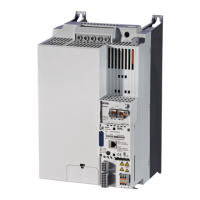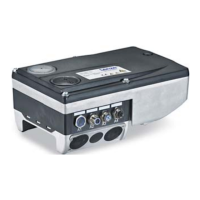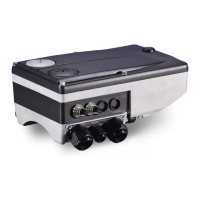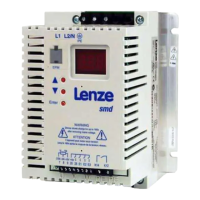Lenze · E84AYCEO communication module (EtherNet/IP™) · Communication Manual · DMS 3.0 EN · 10/2013 · TD17 41
6 Commissioning
6.3 Setting node addresses by means of rotary coding switches
_ _ _ _ _ _ _ _ _ _ _ _ _ _ _ _ _ _ _ _ _ _ _ _ _ _ _ _ _ _ _ _ _ _ _ _ _ _ _ _ _ _ _ _ _ _ _ _ _ _ _ _ _ _ _ _ _ _ _ _ _ _ _ _
Possible settings of the rotary coding switches
Example: Setting of the node address ’52’
Position of the rotary coding switches Description
0 × 16 0 × 1
Default status:
•Value from code C13005 (IP configuration reference, 1: BOOTP)
• The setting can also be made by means of write-access to
attribute 3 (Configuration Control) of instance 1 of the TCP/IP
Interface Object (245 / 0xF5) ( 141).
0 ... 15 1 ... 14
IP address 1 ... 254
• The static address stored in subcode C13000/1...3
is used.
•The subcode C13000/4
is replaced with the value of the rotary
coding switch.
15 15
This setting resets the codes for IP configuration:
• C13000
(IP address)
• C13001
(subnet mask)
• C13002
(gateway address)
• C13005
(IP configuration reference)
• C13006
(Multicast IP start address)
• C13017
(Ethernet setting: Autonegotiation)
• C13018
(Multicast setting: Default algorithm)
• C13021
(Quality of Service (VLAN tagging): deactivated)
• C13846
(Address conflict detection (ACD): activated)
Position of the rotary coding switches Resulting node address
3 × 16 4 × 1(3 × 16) + (4 × 1) = 52

